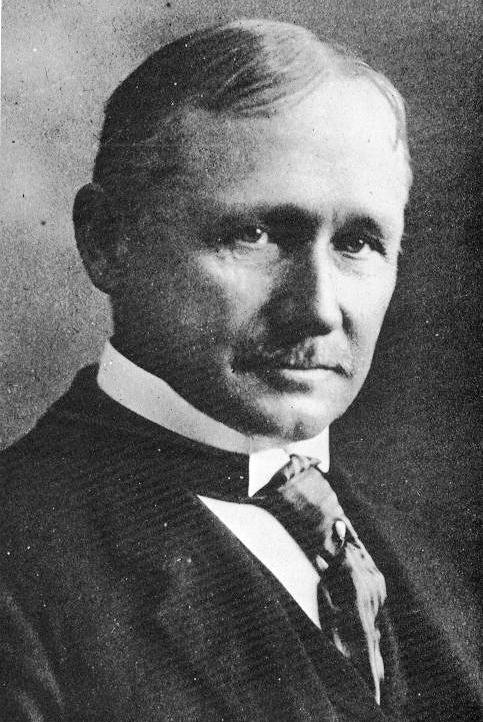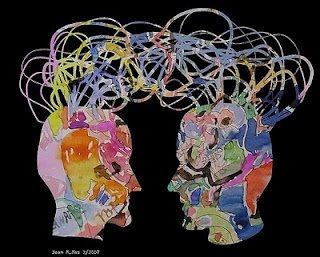TRAINING OF COMPETENCES FOR RESEARCH
CONTENT
1.- Epistemological differences between Humanistic Sciences and Administrative Sciences. (Analysis and critical interpretation).
2.- Quantitative and Qualitative Research. Definitions. Characteristics. Relevance. Analysis and comparative interpretation between both.
DEVELOPMENT
Epistemological differences between Humanistic Sciences and Administrative Sciences. (Analysis and critical interpretation).
In principle, it should be mentioned that epistemology, also known as the philosophy of science, is research on the nature of scientific practice. It deals with knowing how scientific theories are developed, evaluated and changed, and whether science is capable of revealing the truth of occult entities and the processes of nature. The two basic propositions that allow to build science are philosophical:
• Nature: regular, uniform and intelligible.
• Man: able to understand the intelligibility of nature.

Starting from this conceptual framework is important to delimit this investigation; in this sense it can be affirmed that the Administrative Theory develops issues such as the structure of the company, the man, the productive work, the measurement of the exact time for the accomplishment of the tasks, the new management, etc., that not only concern to the Administration but also to Philosophy. "Philosophy has much to contribute to the Administration and its professionals. The Administrative Sciences are related to the Gnoseology, philosophical discipline that raises the problem of knowledge and Epistemology that inquires about our way of knowing and the scientific value of the known.

The father of the Scientific Administration Frederick Taylor saw the Administrative Science with the eyes of an engineer, he was interested in the exact measured amount of work, the physical time, the clock with a decimal quadrant, but despite his myopia, other researchers came after him and envisioned wider horizons . In fact, the businessman Robert Owen in the Scotland of the early eighteenth century contrasts the idea of prison-factories with the idea of small cooperative villages. He warned that what happened inside a factory was not something as simple or as political as the absolute authority of the capitalist, but something more complicated and changing. He discovered the importance and power that human relations had in an industrial organization and he did it in a new and totally adverse social and economic framework. There are many authors who see in these ideas the germ of the later 'humanistic theories' in Administration. However, at that time a notion of man was maintained as the machine man, the man as a resource; when the central theme of the humanist discipline deepened more and more in man, because only man can order and organize himself to achieve his own good and the common good of the whole society. The Administration imposed rigorous mechanization standards that required human beings without fatigue.

Now, with this initial positioning and to delve into the interpretation and analysis of the epistemological differences between Humanistic Sciences and Administrative Sciences, it is necessary to establish a framework that also considers two additional conditions: the first is that Administrative Sciences are part of the subjects of study of the Humanistic Sciences, which is already quite heterogeneous; and where areas such as Law, Ethics, Sociology, Philosophy, Anthropology, etc., coexist or can be linked. The second, as Michel Foulcault points out (1980), that:
History is a social construction of men, a narration of events based on a truth; This truth is never absolute, but depends on the discourse of each epoch, that is, on a system of regulated dispersion of practices and knowledge.
What determines that the concepts, values, theses or paradigms are affirmed, modified and constructed in the as society itself evolves. How it is establishing new and greater cognitive territories to science that will later be translated into imposed codes whose fatality will later be its own questioning. Under this approach, then, it can be said that the first notable epistemological difference is that the Humanistic Sciences constitute a compendium of areas that aim to study man in an integral way: his history, his cultural baggage, his thought, his behaviors; that is to say, the Man is the center of study and the position from which it is tried to understand to this one it raises in the practice a determined discipline.

While the Administrative Sciences start from integrating men, techniques, strategies, financial resources and capital goods in the search of formulas that lead to efficient organizations within the framework of their nature or objectives. It is included in the Humanistic Sciences because it assumes that these organizations are energized through the synergy of human efforts and the determined orientation of human beings playing roles called "managerial". It is good to remember that it is Frederick Taylor himself "who tries to found the Administration on universal principles that allow him to become a science." Establishing a new territory for scientific research within the administrative discipline, studies that led to work on behavior and incentives that later developed between other investigators, Maslow and the Gilbreth spouses; certainly forerunners in the humanistic leanings of future strategies, techniques and methodologies in the field of Administration. Given that in the scope of the organizations a countless number of human relationships are woven and these also depend on the success of the same; this has been granted nature to be considered as part of the Humanistic Sciences. Then, the main difference starts from the transcendence of the latter and a well-defined particularity of Administrative Theory. The delimitation of the object of each of the humanistic plots and the use of an appropriate method of work and research have involved the consideration of many of them as "sciences", as the Administrative Sciences have been considered. And here it is worth noting that, in the early stages of the Theory of Administration; it was trying to respond to an explosive growth of production, product of the industrial revolution, within the framework of a society where the living conditions of the workers were deplorable. But the answer at that time was mechanistic: The man-machine. Today, man is no longer a mere instrument of creation of goods; but in a resource integrator, in the center of collective welfare; the participation of man and his relationships in the development of organizations has matured and the Administrative Sciences are evolving towards the humanistic territory as they are considering, in business activities, more aspects inherent to the human being. The second notable difference is that despite the fact that the Administrative Sciences have evolved and are settling to a greater degree the center of gravity of the companies to man; it does not stop considering it as part of a set of usable and replaceable resources; as determined by certain and certain economic principles and realities. This raises the development of human groups subject to market conditions and subordinated to indistinct power factors.

Quantitative and Qualitative Research. Definitions. Characteristics. Relevance. Analysis and comparative interpretation between both.
The goal of any science is to acquire knowledge and choosing the right method that allows us to measure, interpret or evaluate reality is fundamental. In general, the reliability of quantitative and qualitative research techniques, especially the latter, is debated, as some scientists detract from the value judgments. Before entering any analysis it is convenient to determine some conceptual aspects.

First, the most widespread definition that exists of quantitative research is that which is mentioned as the one in which quantitative data on variables are collected and analyzed. Its essential characteristics are:
1.- Study various elements that can be measured and quantified.
2.- All information is obtained based on samples from the population, and its results can be extrapolated to the entire population, with a certain level of error and level of confidence.
3.- Propensity to "use" the subjects of the study.
4.- It is limited to respond.
5.- They are weak in terms of internal validity; but they are strong in external validity, what they find is generalizable to the population.
6.- It is frequently associated with the research deductive method.
Quantitative research methods include experimental and quasi-experimental designs, survey research, standardized questionnaires, structured observation records, statistical data analysis techniques, etc.

Second, qualitative research, according to Abdellah and Levine E. (1994) is one that avoids quantification, it is research without measurement. Instead of measuring variables, qualitative researchers make narrative records of phenomena that are studied through techniques such as participant observation and unstructured interviews. Its essential characteristics are:
1.- Study the association or relationship between variables from structural and situational contexts.
2.- Qualitative research tries to identify the deep nature of realities, their system of relationships, their dynamic structure.
3.- Propensity to "communicate with" the subjects of the study.
4.- Just ask.
5.- More horizontal communication between the researcher and those researched greater naturalness and ability to study social factors in a natural setting.
6.- It is frequently associated with the inductive method of investigation.
Qualitative research methods are understood as historical research, phenomenological research, life stories, action research, etc.
The relevance of these two research approaches lies in the use of both quantitative and qualitative procedures in order to help correct the biases of each method in a research. Undoubtedly, the quantitative methodology is the most used. But this is not the product of chance but of the imposition of the scientific method over the years. The quantification increases and facilitates the understanding of the universe that surrounds us; but it does not fully explain it; In this sense, qualitative research plays a complementary role that quantitative research also performs at the time of qualitative research. The fundamental difference between these two is that the quantitative focuses on the study of relationships of quantifiable variables while the qualitative gravitates in structural and situational contexts.
Now, to consider a confrontation on the veracity or reliability of each one of them constitutes today a serious error of appreciation; It is undeniable that Science has not occupied all the spaces of human knowledge. At the beginning of the 19th century, logical positivism, as a reaction to empiricism proposed to test hypotheses probabilistically and if accepted and demonstrated in different circumstances, founding general theories. Therefore, the scientific method, after an observation, generates a hypothesis that contrasts and then emits conclusions derived from this hypothesis test.
But it turns out that the only verification often checked is not a guarantee of generalization; there are circumstances that can not be quantified and end up explaining situations and phenomena that quantitative research can not explain with a general theory. Qualitative research accounts for the evaluation of attitudes or behavioral responses to certain advertising campaigns or products, for example. It assumes as relevant the psychosocial and psycho-affective aspect of the human being. The qualitative studies observe the surveyed spectator, on the one hand, and on the other hand observe the product, or the advertising piece, or any other stimulus that is the generator of certain physical and emotional responses among consumers. It is clear that these observations can be subsequently quantifiable, acquire a probabilistic character if the preference of the researcher is then inclined towards the quantitative method.
CONCLUSIONS
The humanistic and administrative sciences have some contrasting epistemological characteristics; they have been evolving and approaching their scope with time; although the administrative sciences presents traits that induce us to affirm that the human being still continues to be a subject-machine in the business dynamic. The Administration or Scientific Administration enclosed an epistemological reductionism both in the way it dealt with its object - man as a machine - as well as in the method it used, which was that of the physical and engineering sciences.
Man was not the end of the Administration but an instrument without intrinsic value and without personal dignity. His own activity - work - could be assimilated to that of a machine or that of an animal. However, and in defense of the latter, this meant at one time an advance that helped to remove the administration from the space of empirical analysis to improve the performance of industries and economies, and also an advance regarding the class struggle.
Quantitative and qualitative research are methods with well-founded bases that start from different paradigmatic positions. It is inconvenient to raise the reliability or not of one over the other when they can be perfectly complemented. The inclination of the researcher on one or the other may only be determined by the circumstances on which the investigation will be conducted. Qualitative research focuses on giving answers from "social experience", "historical experience", assumes an inductive, structuralist and subjective position while the quantitative one is based on hypothetical deductive, probabilistic and supposedly objective analysis.
BIBLIOGRAFHY
1.- Diccionario Electrónico Wikipedia. Filosofía de la Ciencia. www. es.wikipedia.org. 13-07-2006.
2.- DE YSAGUIRRE, Yerga. Los Fundamentos Filosóficos de las Teorías Administrativas: F. W. Taylor (1856 – 1915). Buenos Aires, Editorial Argentina de Finanzas y Administración, 1945, p. 65.
3.- FOULCAULT, Michel. La verdad y las formas jurídicas, Editorial Gedisa, Barcelona, España. - 1ra. Edición abril 1980 – 2da. Reimpresión mayo 2000.
4.- PITA FERNÁNDEZ, S. y PÉRTEGAS DÍAZ, S. Investigación Cuantitativa y Cualitativa. www.fisterra.com. 11-07-2006.
5.- CABRERO GARCÍA, J y RICHARD MARTÍNEZ, M. El debate investigación cualitativa frente a investigación cuantitativa. Universidad de Alicante. www.universidaddealicante.com.
Congratulations @nheru18! You received a personal award!
You can view your badges on your Steem Board and compare to others on the Steem Ranking
Do not miss the last post from @steemitboard:
Vote for @Steemitboard as a witness to get one more award and increased upvotes!